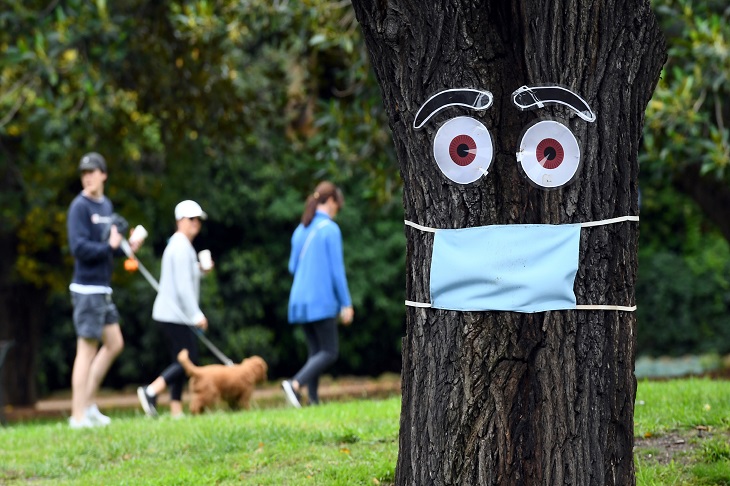With N95 masks now mandatory in most hospital settings, this has sparked a lively debate therein.
One of the most common tropes throughout the pandemic has been the imprecation to wear masks because they are of minimal inconvenience to the wearer. Even if the evidence is equivocal, the fact they ‘might’ work is enough.
Such an argument extends into longstanding problems with political discourse, for any policy whose advocates cannot articulate its downside, is one we should be suspicious of. The specific efficacy of masks is not for debate here, but rather a personal articulation of the costs of such an intervention.
Most obviously, there is a direct inconvenience of wearing them. The physical uncomfortableness, the soreness around the ears, the dislike-able aspect of re-breathing warm breath are among common complaints. There are also the subtler costs in terms of having to remember to bring one to go out, to think ahead when planning something that would otherwise be spontaneous, and the diminution in the enjoyment of an activity that now must be undertaken in such circumstances.
Whilst it may be very reasonable to make medical staff wear such PPE, we cannot deny that it is a rapid and efficient way to immiserate a workforce.
Another argument extends into the very basis of our societal fabric. The idea of wide-spread mask-wearing shifts a societal focus towards seeing people first as vectors of disease and a risk to the self, rather than as sources of inspiration and hope or – at worst – apathy. For adults, this is less of a problem, although it will start affecting interpersonal relationships such as between doctors and patients. With children, the effects of this are of more concern. We do not know the social effects of such policies over a protracted period. It may have no consequences at all, but a good public health policy must consider the long-term impacts on socialisation, and pathologising personal hygiene.
As with any blanket policy, mask-wearing fails to differentiate between the risk of the virus to a teenager versus an octogenarian. Whilst it may limit the spread of disease, mask-wearing may also engender fear in a demographic who have very little to fear themselves.
Indeed, this outlook is without nuance and extends into the politicisation of mask-wearing. As much as masks are being used as a proxy for politics, a division is arising in society along such lines and provides a clear visual illustration this division, slowly leveraging apart societal bonds. We are encouraged to see those who wear masks as either virtuous people, or sheep; and encouraged to see those who don’t as freedom fighters, or selfish risks to public safety (depending on our political biases). A certain sort of person seems to take zeal in enforcing these rules in the spirit of well-meaning citizenry. Coercion as a means of projecting one’s personal morality is a questionable good for society.
There is an environmental concern as well. According to National Geographic, up to 3.4 billion face masks are discarded every day. This is an astonishingly high figure and for people who are worried about pollution and waste, it should be a very real concern.
As with so many topics, the philosophy of Roger Scruton ripples through present discourse. On occasion, he discussed the spiritual aspects of the human face and the profundity of our interaction with other faces. Far from being an inconsequential part of human anatomy, the face is a ‘window on the soul’ – a portal by which we encounter the essence of another human being. It is a window that not only shows us other people, but reflects back images of ourselves. This extends beyond the material ability to communicate and express ourselves and touches on something more profound. In many ways, the face is the essence of our humanity, and foremost tool with which we interact with the world.
This societal shift is surely one of the most profound effects of mask-wearing (amongst other Covid policies too). The adumbration of the idea of free association between free people is an enormous upset to the underpinnings of our society.
There is plainly a role for masks in specific circumstances, with this illness as with others. However, the fact these negatives have not been articulated does not engender trust in the policy, but the opposite. It runs the risk of implying that public policymakers have not thought about the issues in great enough depth. If masks are as efficacious as we may hope to believe, that argument should be made despite the negatives, not in ignorance of them.
Got something to add? Join the discussion and comment below.
Get 10 issues for just $10
Subscribe to The Spectator Australia today for the next 10 magazine issues, plus full online access, for just $10.

























Comments
Don't miss out
Join the conversation with other Spectator Australia readers. Subscribe to leave a comment.
SUBSCRIBEAlready a subscriber? Log in